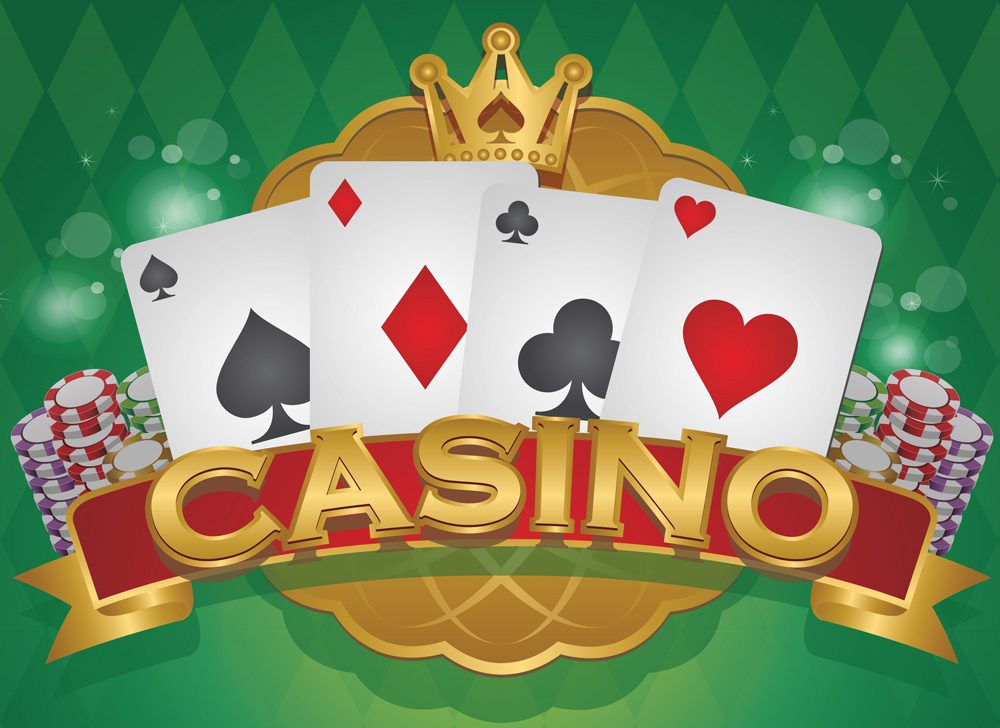
Casino games have captivated enthusiasts for ages, drawing them into a realm of adventure, chance, and wealth. From the blinking lights of slot machines to the tactical nature of poker games, these activities offer a distinct combination of entertainment and risk. However, below the shiny exterior of this glitz and finesse lies a sophisticated interplay of math that determines every outcome and choice made within the gaming hall. okwintv
Comprehending this link between gaming activities and math merely enhances the playing experience but also can help participants make informed choices. Whether you are a casual gambler or a avid enthusiast, recognizing the numerical strategies at play can provide important insights into probability, odds, and tactics, eventually influencing how one approaches these games of luck.
Arithmetic Probability in Gambling
In the realm of casino games, statistical likelihood plays a critical role in assessing outcomes and guiding player decisions. Every game has a unique set of rules and a specific probability model that shapes its dynamics. For instance, in activities like roulette, players must comprehend the chances of choosing a certain number or shade. The likelihood of specific occurrences happening can be calculated, and this knowledge can significantly influence wagering tactics.
Players also need to be cognizant of the house advantage, which is the statistical benefit that casinos hold over gamblers in the long run. This edge varies across various games. In 21, expert players can use strategies to minimize the house advantage to as little as 1 %, while in activities like slots, the casino edge can be much higher. Understanding the house edge allows gamblers to make informed choices about which activities to participate in and the amount to bet.
Furthermore, likelihood is essential in the principle of danger versus reward in betting. Every bet carries a particular danger factor, and gamblers must evaluate the potential payout against that danger. Activities like the poker game require players to not only compute the odds of their personal showing winning but also to evaluate the probabilities of their rivals’ showings. By applying mathematical concepts to their strategy, gamblers can boost their odds of success and participate more effectively in the thrilling world of gambling activities.
Expected Worth in Gambling Activities
When discussing gambling games, one of the fundamental ideas rooted in mathematics is the expected value. This numerical metric assists players grasp the potential outcomes of their bets over time. In basic terms, anticipated worth (EV) calculates the average amount a player can expect to win or lose per bet if they were to play the activity repeatedly. Each activity has its own EV, influenced by the probabilities and the casino advantage, which signifies the benefit that the gambling establishment holds.
For example, think of a game like roulette. The anticipated value can be derived based on the particular bet made. If a gambler bets on a single number, the return is 35 to 1, but the true chances of winning that bet are 1 in 37 (in European roulette). This results in a detrimental anticipated worth, showing that, on the whole, gamblers will lose money over a period when playing this kind of wager. Grasping this idea allows gamblers to make better informed decisions about which activities and wagers may be less advantageous.
Additionally, the exploration of anticipated value can lead to better bankroll management. Gamblers who comprehend the math behind their activities are often able to set realistic expectations. By recognizing their potential losses and profits, they can modify their playing strategies appropriately, which may improve their total gambling experience overall. As a consequence, anticipated worth serves as a crucial tool for both beginner and experienced gamblers to navigate the frequently volatile character of gambling games.
Approaches and Odds: The Arithmetic Behind Winning
In gaming establishments, understanding the probabilities is crucial for gamblers seeking to maximize their opportunities of success. Each game has its own specific set of chances that determine successful results, and these figures are often found in the gaming guidelines or payout schedules. For example, in activities like blackjack, gamblers can boost their odds through strategies such as counting cards, which is based on mathematical principles to gain an advantage over the establishment. By educating themselves with the probabilities, gamblers can make more educated decisions on when to wager and when to give up.
Furthermore, the idea of expected outcome has a significant function in gaming tactics. Expected value assesses the average outcome of a bet over the long run, allowing gamblers to judge whether a certain wager is valuable taking. For example, video slots have a specific payout percentage, which can indicate the average return a participant can anticipate on their stakes. By choosing games with better payout percentages, gamblers can lessen the house edge, maximizing their possible rewards in the over time.
Lastly, successful gamblers often adopt a combination of luck and calculative tactics to enhance their gaming experience. While chance is uncontrollable, managing a staking plan based on math insights can lead to more positive results. By utilizing techniques such as budgeting and picking games, gamblers can utilize math to maneuver through the volatile nature of casino games, making the most of their investments and resources at the casino.